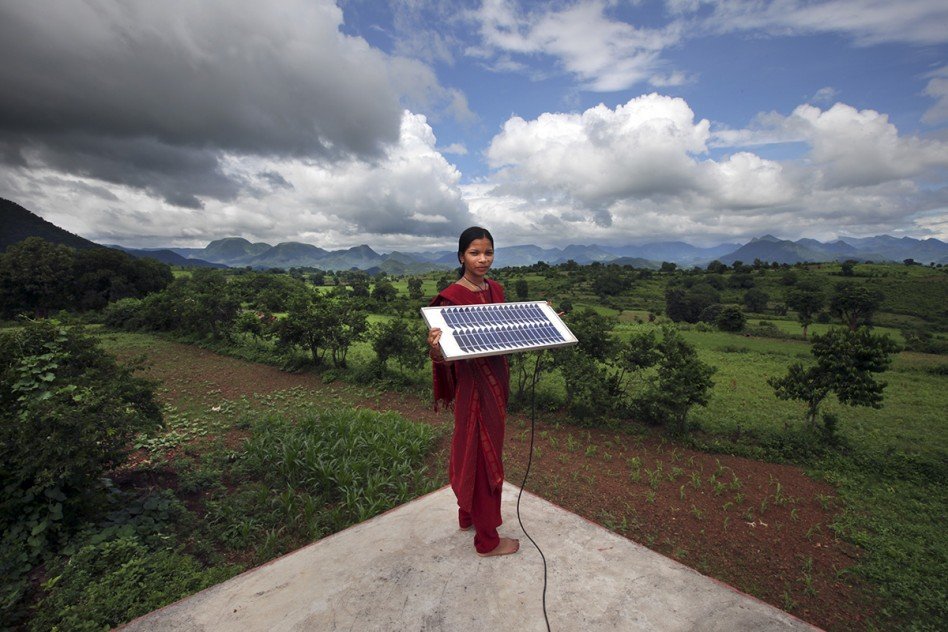News Source: Oxfam | Image Credit: Climate Change Observer
Over the past few decades, scientists have been repeatedly emphasizing the urgent need of adopting renewable energy sources. A recent report titled “Powering Up Against Poverty”, released by Oxfam Australia, has discussed why renewable energy sources are not only sustainable and environment-friendly, but also are capable of fighting poverty by providing cheaper electricity to the poorer sections of the developing countries.
Nearly 1.3 billion people in the world do not have access to electricity, of which, 84% live in rural areas. Conventional energy sources (coal and other fossil fuels) usually fail to serve such places, as transmission costs from the central power grid are usually quite high. The report argues that localised non-conventional energy sources, such as solar and wind energies, are often cheaper alternatives.
The report explains a few more reasons why tackling pollution and empowering the poor may go hand in hand through the use of renewable energy sources. A brief comparison is presented below:

The Indian Government has set a target of raising India’s solar energy production to 100 GW by 2022, with the primary motivation of supplying cheap electricity to over 30 crore Indians living beyond the reach of central power grids. While India will still continue to primarily depend on coal by then, it is clear that we are gradually shifting our priority to developing renewable energy sources, which is definitely a welcome step. This is also likely to reduce our dependence on imports.
Besides, pollution rates in India have been rising sharply, resulting in alarming levels of pollutants in the air and a recent deadly heat-wave. Increasing our dependence on renewable energy sources appears to be a twin solution to India’s poverty and pollution.












